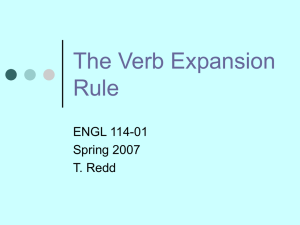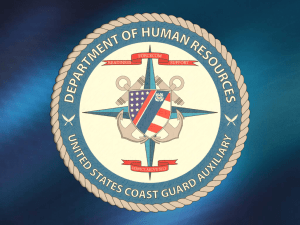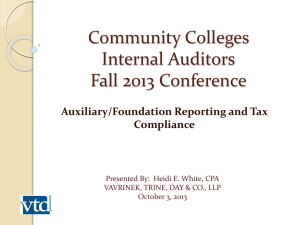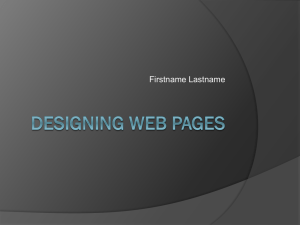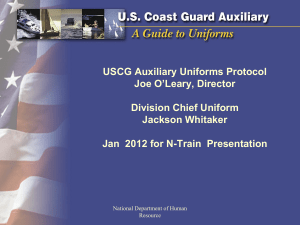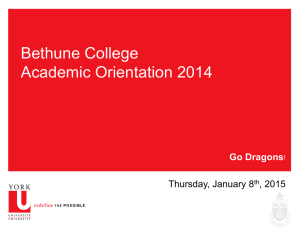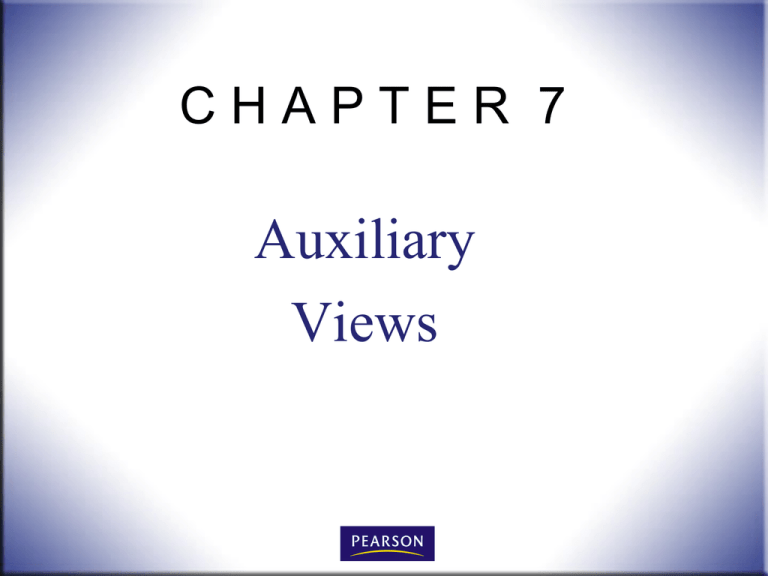
C H A P T E R 72
Auxiliary
Views
Auxiliary views
Auxiliary views are orthographic views used to present
true-shaped views of slanted and oblique surfaces. Slanted
and oblique surfaces appear foreshortened or as edge views
in normal orthographic views.
Auxiliary view
True-shaped views
Engineering Graphics with AutoCAD 2011, 1/e
James Bethune
2
© 2011 Pearson Higher Education,
Upper Saddle River, NJ 07458. • All Rights Reserved.
PROJECTION BETWEEN
NORMAL AND AUXILIARY VIEWS
Information about an object’s features can be projected between the normal views and
any additional auxiliary views by establishing reference planes. A reference plane RPT
is located between the top and front views
Engineering Graphics with AutoCAD 2011, 1/e
James Bethune
3
© 2011 Pearson Higher Education,
Upper Saddle River, NJ 07458. • All Rights Reserved.
information projected from given
front and side views into an auxiliary view
Reference planes RPS and RPA were located 10 millimeters from and
parallel to the side and auxiliary views, and information was projected
from the front view into the auxiliary view using lines perpendicular to
plane RPA.
Engineering Graphics with AutoCAD 2011, 1/e
James Bethune
4
© 2011 Pearson Higher Education,
Upper Saddle River, NJ 07458. • All Rights Reserved.
TRANSFERRING LINES
BETWEEN VIEWS
Objects are often dimensioned
so that only some of their edge
lines are dimensioned. This
means that Offset may not be
used to transfer distances to
auxiliary views until the line
length is known.
There are three possible
methods that can be used
to transfer an edge line of
unknown length.
Engineering Graphics with AutoCAD 2011, 1/e
James Bethune
5
© 2011 Pearson Higher Education,
Upper Saddle River, NJ 07458. • All Rights Reserved.
PROJECTING ROUNDED
SURFACES
Rounded surfaces
are projected into
auxiliary views as
they were projected
into the normal
orthographic views
Engineering Graphics with AutoCAD 2011, 1/e
James Bethune
6
© 2011 Pearson Higher Education,
Upper Saddle River, NJ 07458. • All Rights Reserved.
PROJECTING IRREGULAR
SURFACES
Auxiliary views of irregular surfaces are created by
projecting information from given normal orthographic
views into the auxiliary views in a manner similar to the way
information was projected between orthographic views.
The irregular surface is defined by a series of
points along its edge line
Engineering Graphics with AutoCAD 2011, 1/e
James Bethune
7
© 2011 Pearson Higher Education,
Upper Saddle River, NJ 07458. • All Rights Reserved.
PARTIAL AUXILIARY
VIEWS
It is often clearer to
create an auxiliary view
of just the slanted
surface and omit the
surfaces that would be
foreshortened.
Engineering Graphics with AutoCAD 2011, 1/e
James Bethune
8
© 2011 Pearson Higher Education,
Upper Saddle River, NJ 07458. • All Rights Reserved.
SECTIONAL AUXILIARY VIEWS
Sectional views may also be drawn as auxiliary
views.
Engineering Graphics with AutoCAD 2011, 1/e
James Bethune
9
© 2011 Pearson Higher Education,
Upper Saddle River, NJ 07458. • All Rights Reserved.
AUXILIARY VIEWS
OF OBLIQUE SURFACES
An auxiliary view shows the true shape of a surface only when it
is taken at exactly 90° to the surface.
Oblique surfaces are surfaces rotated about two axes.
Oblique surfaces are surfaces rotated about two axes.
Engineering Graphics with AutoCAD 2011, 1/e
James Bethune
10
© 2011 Pearson Higher Education,
Upper Saddle River, NJ 07458. • All Rights Reserved.
SECONDARY AUXILIARY
VIEWS
A second auxiliary view can then be taken perpendicular to
the end view that will show the true shape of the surface.
Engineering Graphics with AutoCAD 2011, 1/e
James Bethune
11
© 2011 Pearson Higher Education,
Upper Saddle River, NJ 07458. • All Rights Reserved.
SECONDARY AUXILIARY
VIEW OF AN ELLIPSE
The secondary view of the surface will show the hole as a
circle, so only a radius value need be carried between the
views.
Engineering Graphics with AutoCAD 2011, 1/e
James Bethune
12
© 2011 Pearson Higher Education,
Upper Saddle River, NJ 07458. • All Rights Reserved.
Work on your Sample Problems as directed
by your teacher
Engineering Graphics with AutoCAD 2011, 1/e
James Bethune
13
© 2011 Pearson Higher Education,
Upper Saddle River, NJ 07458. • All Rights Reserved.

